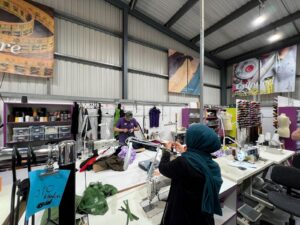Banks should reward sustainable farming, report says
When lending money, banks should reward farmers who look after the long-term health of their soil, water and biodiversity, according to a new report.
Currently, banks lend to farmers almost solely based on their most recent profit and loss accounts, not taking natural capital into account in their credit risk assessment.
However, the report from the University of Edinburgh Business School says banks should consider how a farm impacts on natural and environmental resources or ‘natural capital’.
The report argues that the current approach from banks is ‘short-sighted’ because a farm’s financial performance can be improved over the short-term in an unsustainable way, for example by over-application of fertiliser, which may boost yields but causes a build-up of acidity in the soil.
In the longer-term, this type of activity may negatively affect the farmer’s financial performance, and therefore their ability to repay a loan.
A new framework, developed by Dr Ascui at the school, takes into account factors such as water availability, use and quality; soil health; biodiversity; energy use and greenhouse gas emissions, allowing banks to identify and increase lending to more sustainably run farms.
The report says banks were held back in the past from evaluating natural capital risks because they vary considerably across agricultural sectors and geographies. What is beneficial for one crop or type of livestock may be harmful for another.
So Dr Ascui created a global generic template for natural capital credit risk assessment which can be readily adapted for different agricultural sectors and geographies, with a worked example based on wheat cropping in Australia. He says the approach is designed to be consistent with the leading international standard for including natural capital in business decision-making, the Natural Capital Protocol.
Speaking at the recent launch of the initiative, Dr Francisco Ascui, senior lecturer in Business and Climate Change at the University of Edinburgh Business School said: ‘The agriculture sector is at the front line in terms of both its impacts and dependencies on the environment.
‘Farmers are key custodians of our soil, water and biodiversity and depend on these resources for their livelihood, so lenders should recognise and reward more sustainable farming practices.
‘This new approach to natural capital credit risk assessment is only a first step – the challenge will be in implementing it. This is a journey that we have to start, if we’re going to have any hope of achieving truly sustainable agriculture.’















